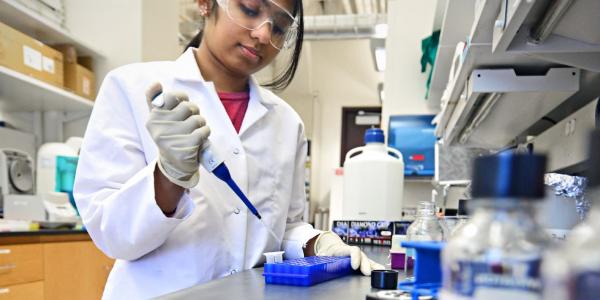The National Society of Genetic Counselors defines genetic counseling as “the process of helping people understand and adapt to the medical, psychological and familial implications of genetic contributions to disease.” Genetic counseling involves helping patients understand how inherited diseases and conditions might affect them or their families, how family and medical histories may impact the chance of disease occurrence or recurrence, which genetic tests may or may not be right for them, and how to make the most informed choices about healthcare conditions.
The Application Process
It is important that you review the websites for the genetic counseling graduate programs to which you are interested in applying to make sure you have taken the necessary prerequisites for admission into their programs. One must earn a Master's degree from an accredited program to work as a genetic counselor in the U.S. and Canada. To obtain a license (required to practice in many states), applicants must graduate from an accredited program and pass a national certification examination. A list of accredited programs in the U.S. and Canada can be found at the Program Directory on the Accreditation Council for Genetic Counseling website.
Undergraduate Experience:
Applicants to genetic counseling graduate programs must have a Bachelor’s degree (or equivalent if from a foreign college or university). Most applicants will have majored in Biology or a related field (e.g. Biochemistry or Genetics) or in Psychology. Specific prerequisites vary by program. The Program in Genetic Counseling at WU requires the following:
- Undergraduate GPA at least 3.0
- Undergraduate coursework in:
- Genetics
- Biochemistry
- Statistics
- Psychology
Most programs also highly recommend that applicants have obtained the following types of experiences:
- Exposure to the field via shadowing and/or informational interviewing
- Advocacy and/or counseling experience including but not limited to
- In-person, phone, and/or text crisis counseling
- Patient counseling/advocacy work at community or health organizations (e.g. Planned Parenthood, domestic violence center, etc.)
- Working with individuals or families affected with genetic conditions or disabilities (e.g. Special Olympics, ARC, etc.)
Some programs require that students submit GRE scores. The Program in Genetic Counseling at WU does not require GRE scores and will not review them.
Degree Offerings:
A Master’s degree in Genetic Counseling is considered a terminal degree. There are no institutions offering a PhD in Genetic Counseling, although some genetic counselors may obtain doctoral degrees in fields related to the areas in which they plan to focus their careers, such as in Public Health or Education.
In the United States, genetic counselors are generally recognized as individuals who have obtained a Master’s degree (either M.S. or M.A.) from a genetic counseling graduate program accredited by the Accreditation
Council for Genetic Counseling. Genetic counseling graduate programs are typically two-year programs which are composed of medical genetic- and counseling-focused curriculum, clinical rotations, and a research project.
Specialization:
All graduates of accredited genetic counseling graduate programs are prepared for entry-level genetic counseling positions, regardless of the area of specialization. Common areas of specialization for genetic counselors include Oncology, Prenatal, Pediatrics, Neurogenetics, and Cardiology. Specializing in one area of practice would be something you would pursue after you graduate and become employed. Many genetic counselors do select a specialty area of practice that they focus on throughout their careers. Others change their area of practice many times. The field of Genetic Counseling provides a great deal of career flexibility.


